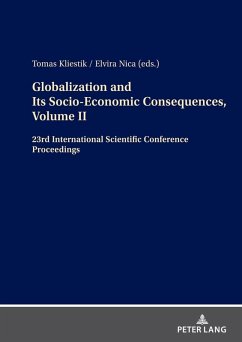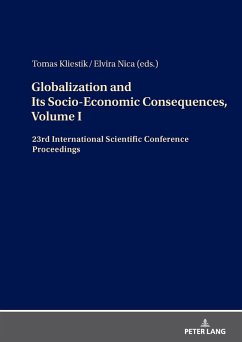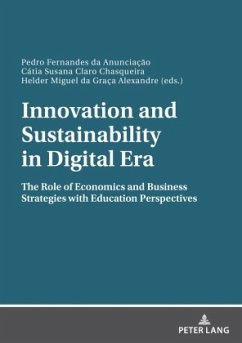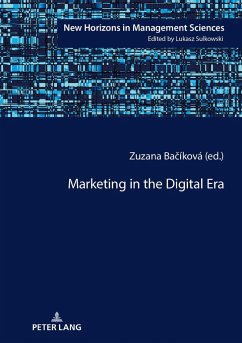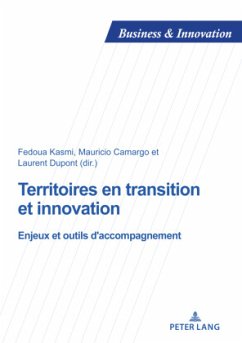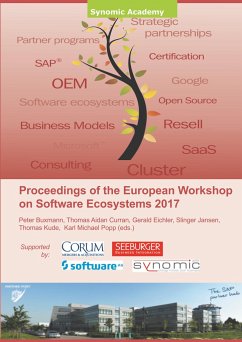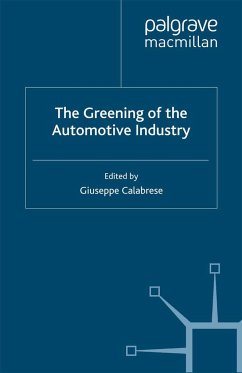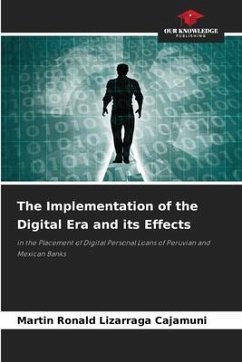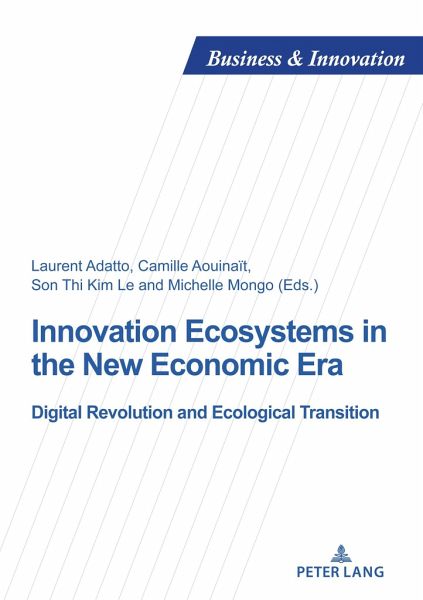
Innovation Ecosystems in the New Economic Era
Digital Revolution and Ecological Transition
Herausgegeben: Adatto, Laurent; Aouinait, Camille; Kim LE, Son Thi; Mongo, Michelle
Versandkostenfrei!
Versandfertig in 6-10 Tagen
54,95 €
inkl. MwSt.
Weitere Ausgaben:

PAYBACK Punkte
0 °P sammeln!
Digital technologies are revolutionizing global economy, modes of production and consumption, at individual and collective levels. Nevertheless, involved socio-economic models can be often incompatible with major challenges faced by humanity, notably environmental crisis and climate change that warn about the end of a linear growth model which aimed at "produce, consume and throw away", in order to move towards an economic development that tends to limit the waste of resources and environmental impact. For that purpose, innovation should be responsible and at the service of a more sustainable ...
Digital technologies are revolutionizing global economy, modes of production and consumption, at individual and collective levels. Nevertheless, involved socio-economic models can be often incompatible with major challenges faced by humanity, notably environmental crisis and climate change that warn about the end of a linear growth model which aimed at "produce, consume and throw away", in order to move towards an economic development that tends to limit the waste of resources and environmental impact. For that purpose, innovation should be responsible and at the service of a more sustainable development.
This apparent contradiction between digital production forces and bio-climatic issues can be questioned by the emergence of innovation ecosystems. At their center, new technologies constitute drivers for solving problems of degradation of nature, food, and survival of species. In this perspective, the questions addressed in this book focus on the beneficial interactions between digital technologies and environmental challenges.
Both of them shape the edges of a new socio-economic era. The authors of this book detail the paradigm of this new economic, industrial and corporate era that emphasizes investments in innovation, R&D and aggregation of expertise, skills and knowledge through innovation digital ecosystems to supporting digital revolution and ecological transition.
This apparent contradiction between digital production forces and bio-climatic issues can be questioned by the emergence of innovation ecosystems. At their center, new technologies constitute drivers for solving problems of degradation of nature, food, and survival of species. In this perspective, the questions addressed in this book focus on the beneficial interactions between digital technologies and environmental challenges.
Both of them shape the edges of a new socio-economic era. The authors of this book detail the paradigm of this new economic, industrial and corporate era that emphasizes investments in innovation, R&D and aggregation of expertise, skills and knowledge through innovation digital ecosystems to supporting digital revolution and ecological transition.





